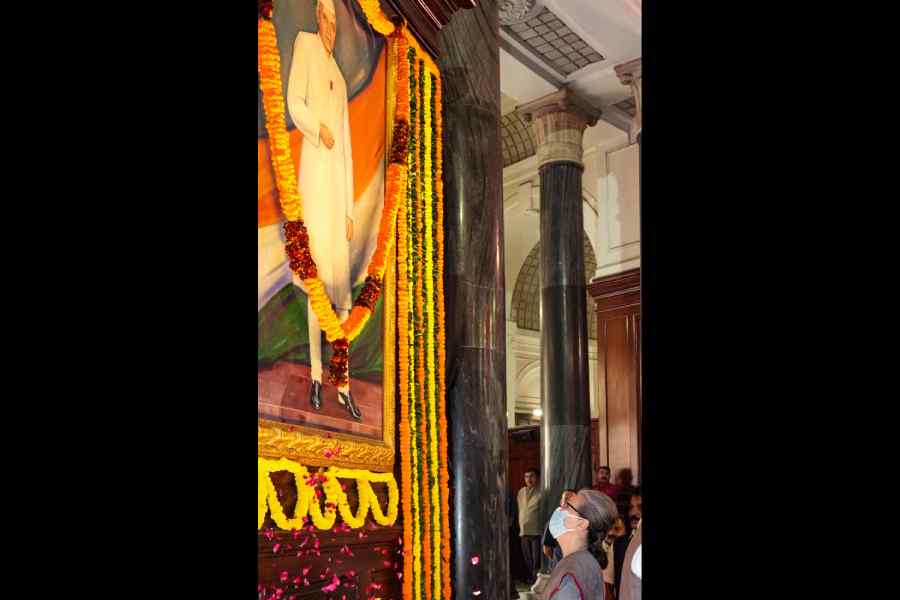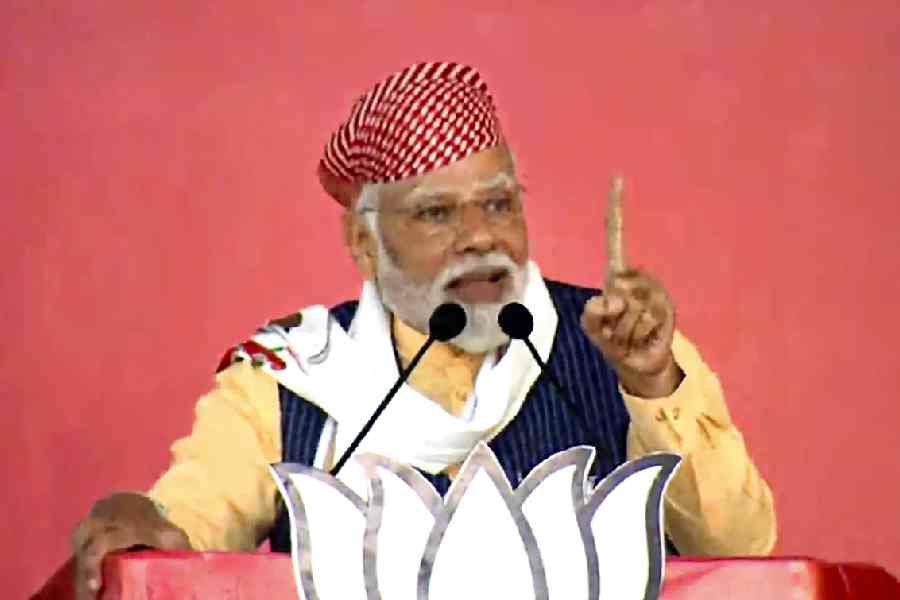Forget semi-literate youth and their incendiary, uninformed rants, intoxicated by the flawed vision that only Hindus have the right to live in India; the majority of educated boys and girls whose political consciousness took shape over the last decade appear to have poor or no understanding of our constitutional scheme.
While civic amenities, jobs and corruption dominate the political discourse across the Madhya Pradesh heartland, it is almost impossible to find a young citizen who wants to vote for ideological reasons. In the course of random conversations with young voters in the state’s two biggest cities — Indore and Bhopal — issues like paper leaks, corruption, infrastructure, cost of education and India’s “rising” prestige in the world cropped up but no one referred to secularism or constitutional morality.
Asked about the political climate in the state, two young gainfully employed IT professionals in Bhopal said Prime Minister Narendra Modi was doing a wonderful job but a change was desirable in the state primarily because of the fatigue factor. “We have seen enough of this (Shivraj Chauhan) government,” said one. The other thought “a jolt will reinvigorate the local BJP machinery”.
The frame of electoral reference of young minds is invariably the BJP. They have no fascination for the Congress; in fact, they were bitterly critical of what they described as “freebies” Rahul Gandhi promised everywhere, and expressed their yearning for a stronger Opposition only to keep Modi on his toes. Asked about Modi’s achievements, they said only a strong leader like him can manage the contradictions of this vast country and that India’s prestige in the world got enhanced because of him. “Bharat ka danka baj raha hai,” one of them said nonchalantly, echoing Modi’s boast.
Barely in the mid-20s, these young men haven’t seen any other model of politics and the media has blunted their critical faculties by not asking the right questions. One of them giggled in derision when told of Jawaharlal Nehru’s intellectual prowess and recognition as a global statesman. They looked in disbelief when told about Indira Gandhi’s valiant resistance to American pressure during the liberation of Bangladesh; India leading the Non-Aligned Movement; and P.V. Narasimha Rao ushering in economic liberalisation along with Manmohan Singh.
They almost dismissed as a “cock-and-bull story” indisputable facts about the BJP being untouchable in Indian politics and Atal Bihari Vajpayee having to form coalition governments by setting aside contentious issues like Article 370, the Uniform Civil Code and Ram temple.
Oblivious of the secular language, they didn’t find any fault with dog-whistle politics, leave aside the vociferous majoritarian rhetoric. “What’s wrong with Hindutva? Even Rahul Gandhi goes to temples. Kamal Nath is a Hanuman bhakt,” they argued.
They were barely six-year-old or so when the Vajpayee government was ousted and Manmohan Singh became the Prime Minister. In 2014, they would have been 16, just beginning to grasp the rudiments of how society and politics function. They saw Manmohan as a Prime Minister “who couldn’t even speak” and Modi as a Prime Minister “who spoke so well”. They didn’t care to delve any deeper; they were knowledgeable on computers and that constituted enough education.
They were bewildered that they had come to face questions such as: Do you know the only significant thing that happened when Modi was called Hindu Hriday Samrat was a horrific communal riot in Gujarat on his watch? Is it desirable for the Prime Minister to use metaphors and language that fuel communal tension? What has Modi done to stop divisive politics? Do Bajrang Dal and VHP act as agents of social harmony? Is it not right that Bofors was thoroughly investigated and Rafale wasn’t? Shouldn't the charges against industrialist Gautam Adani be probed?
Their response: are you a Congressi?
They didn’t have convincing answers but refused to believe Modi could commit any wrong. To another question — does India need a secular society — they said: “Yes”. Was Bharat Jodo Yatra led by Rahul justified? “Yes”. Then why can’t Modi and the system work to unite the country? While one meekly mumbled something about a “surgical strike in Pakistan” and Modi’s “love for soldiers”, the other retorted, “…but isn’t the BJP a nationalist force?”
Nationalism is the battleground on which misconception and communalism are weaponised. Asked if they could see the difference in Modi’s attitude towards Pakistan and China, which has encroached upon our land in Ladakh, the boys fell silent. Asked if Modi shouldn’t talk to the trouble-makers, mostly his supporters, who disturb social peace and communal amity, one of them said: “He should.” Aren’t nine years a long time to prove that he is committed to constitutional principles of equality and justice? Both said: “Yes.”
A fascinating insight emerged from another conversation with a group of college students — three boys and two girls — in a posh market in Indore’s Vijaynagar. While admitting a severe job crisis worried them, they also talked of India’s rising status in the world. “Modi is Vishwaguru, even America takes advice from him. He stopped the war in Ukraine with one phone call,” the smartest of the group announced. Asked if Americans ever chanted “Vishwaguru” and whether 80 crore people there depend on free ration for survival, one boy said: “We are poor but Modi is the first PM who gets respect.”
Another boasted: “We will soon become the second largest economy.” Modi has indeed kept what the political scientist Pratap Bhanu Mehta describes as the “emotional furnace of national ambition” burning with his lofty rhetoric. To have India’s educated youth “worried” about employment, celebrating a false narrative is no mean achievement.
One of the girls in the group mentioned the sense of “pride” involved in the Ram temple project which “the Congress always opposed”. That very day, the local newspapers quoted Union minister Smriti Irani as telling the voters: “The Congress doesn’t accept Ram’s existence. Kamal ka button dabayen, Bhajpa ko jitayen aur Ram lalla ke darshan karne jayen (Press the lotus button, ensure BJP’s victory and visit Ayodhya to worship Ram).”
Onto the last question: Is the state supposed to align with one religion? The entire group burst out in a chorus; “Hindu desh hai. Koi Pakistan nahin hai.”
The question that should never be asked today: Have you read the Constitution?












